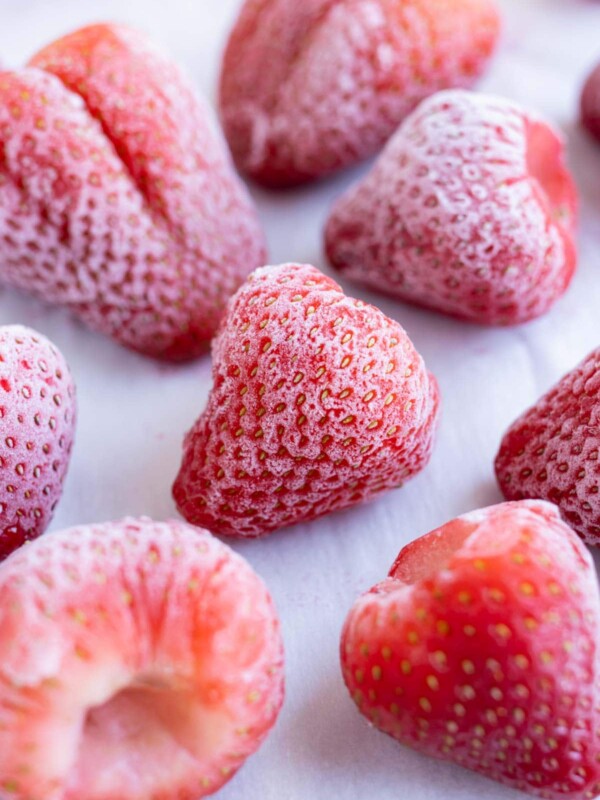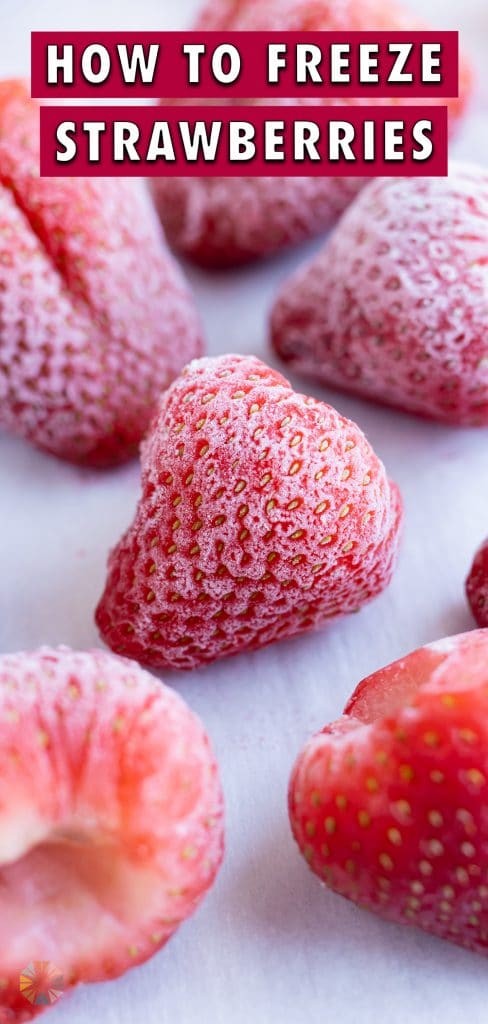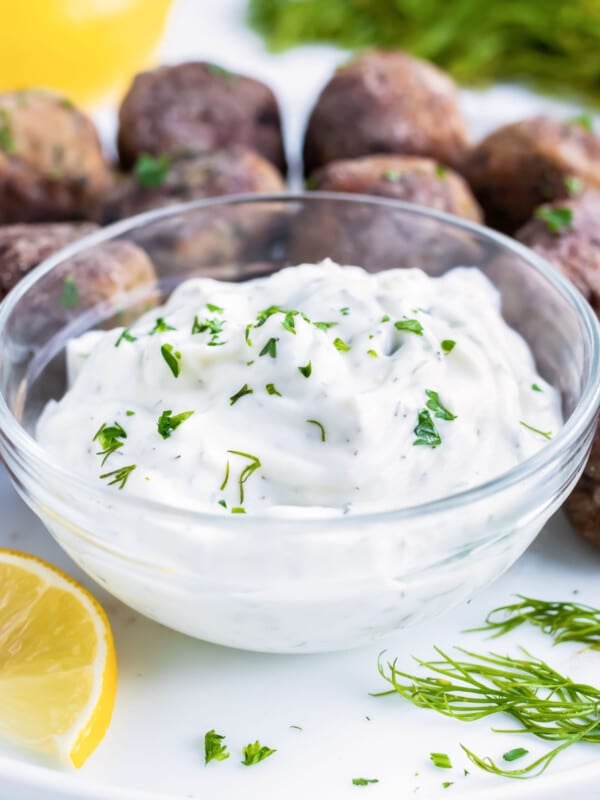Once fresh strawberry season is upon us, it’s hard not to buy up TONS of this sweet fruit!! The farmer’s market and grocery store are are always FULL of these delicious berries in the summer.
But what happens when you purchase a few too many pints?!
You freeze them!!
Frozen strawberries (and even frozen blueberries!) are great to have on hand year-round to pop into a Strawberry Kiwi Smoothie, desserts, sauces, or even a Baked Oatmeal recipe.
Plus, if you freeze them during their peak season, the flavor is SO much better than if you purchase them during the off-season.
And by following a few simple steps, they won’t get freezer burned and will be ready whenever you need them.
How to Freeze Strawberries
Below you’ll find the basic steps to freeze strawberries.
Rinse and Dry
First, check the entire batch of berries for any that are rotting or mushy. Next, thoroughly wash the strawberries making sure to remove all dirt and debris. Use cold water and a colander to drain all of the liquid.
Lay them out on a paper towel to fully dry. You can gently pat the berries to speed up the process. Ensure the strawberries are completely dried before moving on. Any remaining liquid can result in ice crystals or freezer burn.
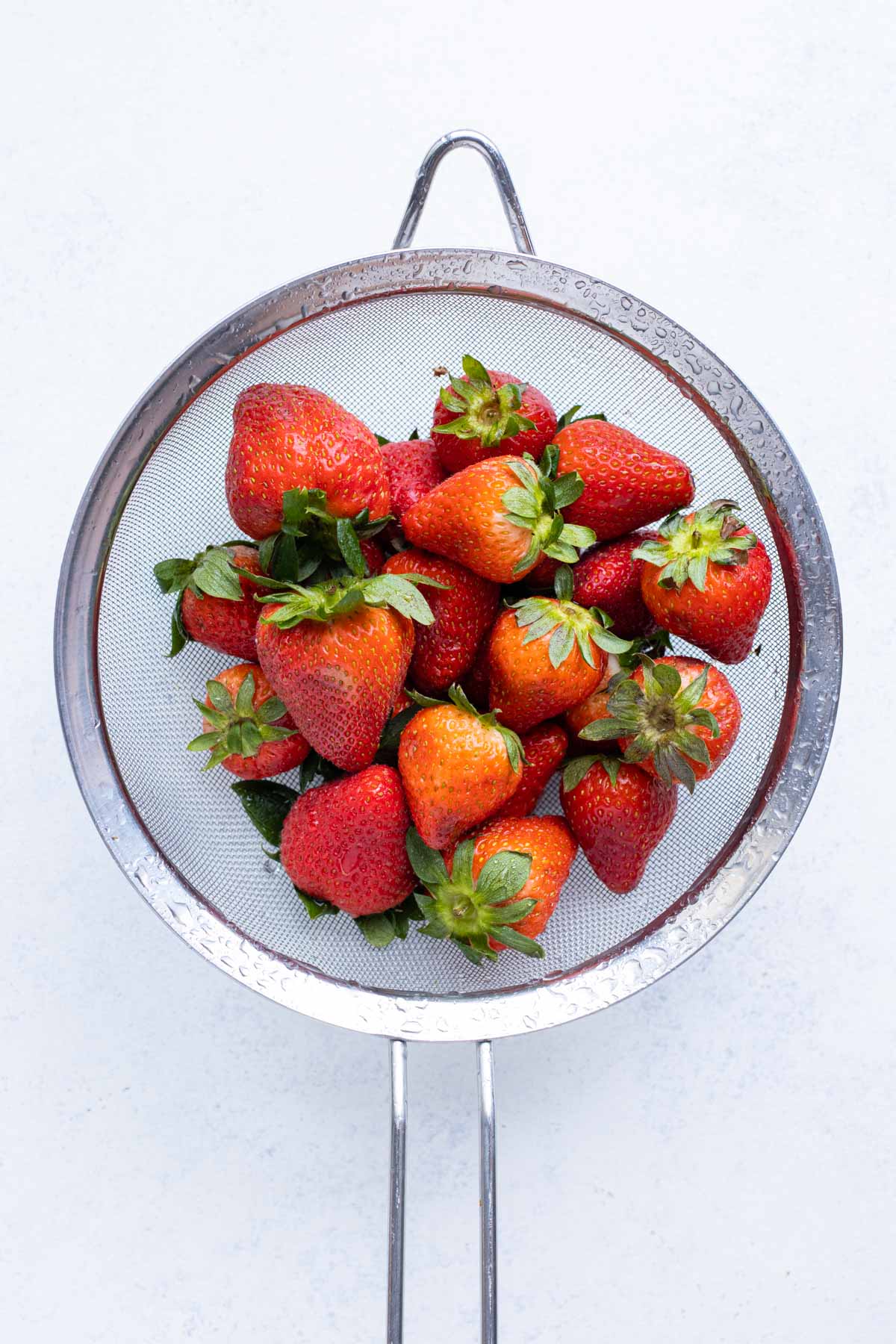
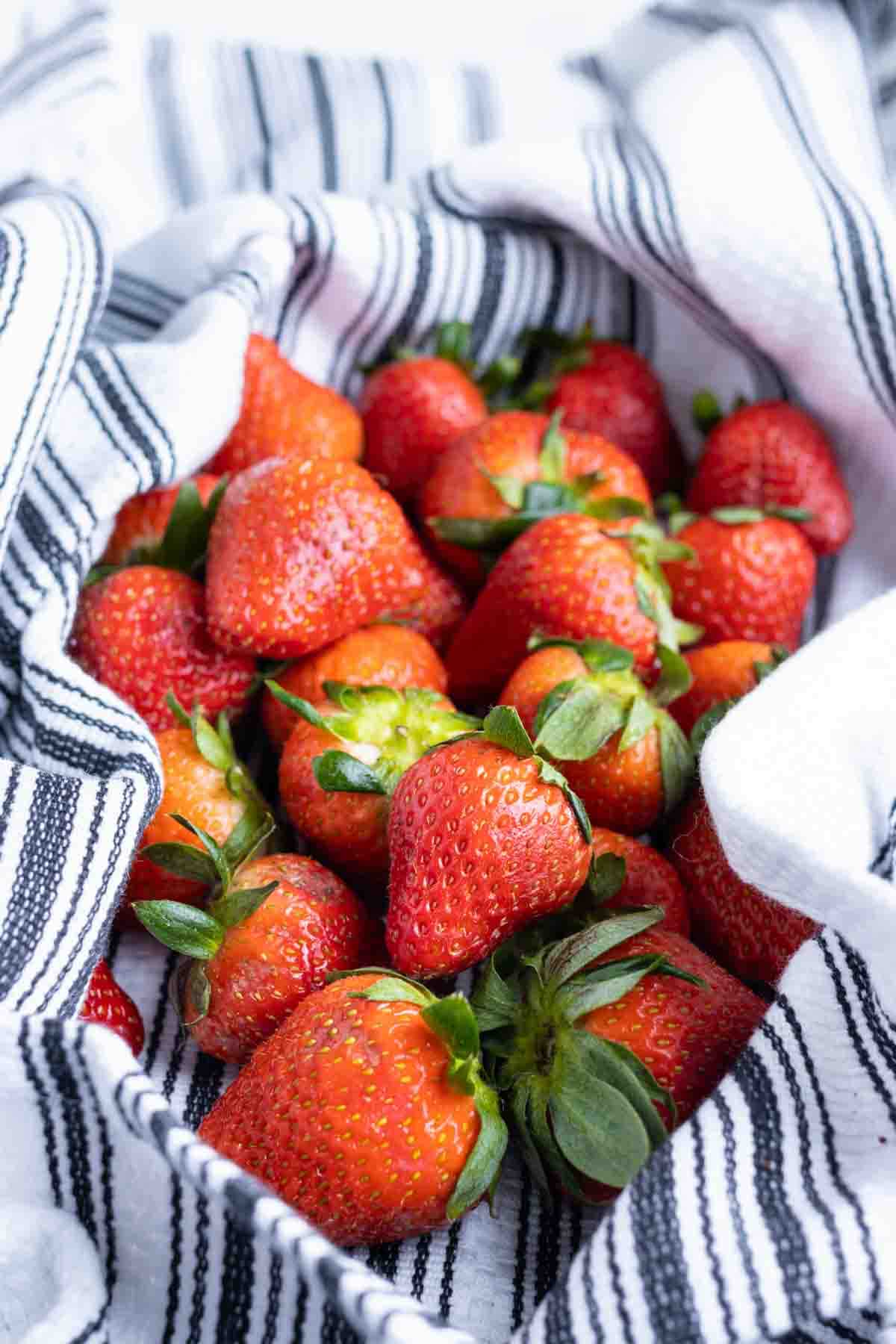
Hull the Strawberries
After the berries are clean, use a small pairing knife to carefully cut the stem away. You want to cut down into the berry some to remove all of the tough, white portion.
Another method is to use a straw by carefully pushing it through the strawberry from the bottom. The stem and hull should pop right off.

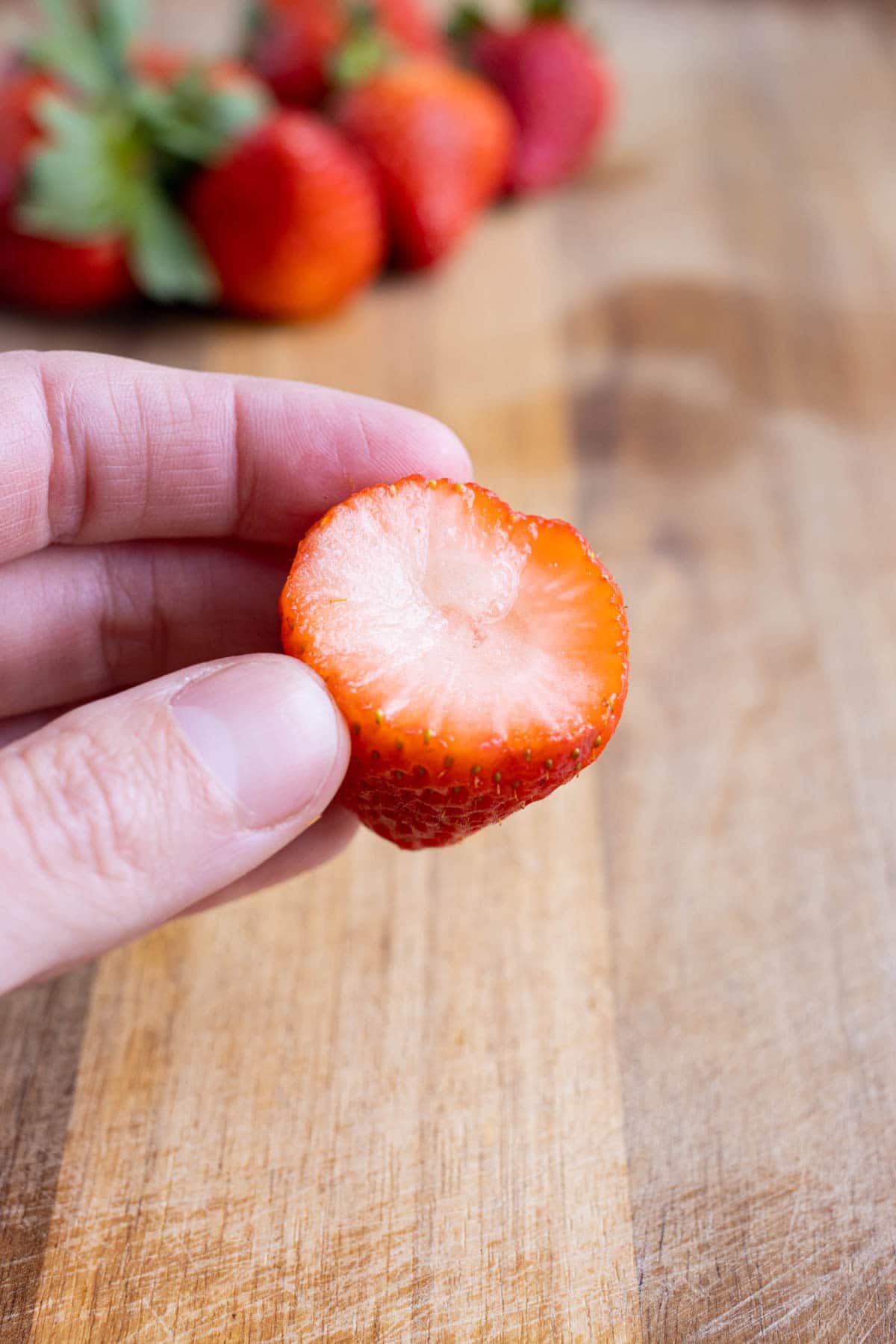
Sliced or Whole
Once the berries are clean and hulled, prepare them for freezing. You can leave the strawberries whole or they can be cut in half or sliced thinly, depending on your preference.
Be sure to chop the berries as evenly as possible. This will help them freeze consistently and be ready to use after thawing.
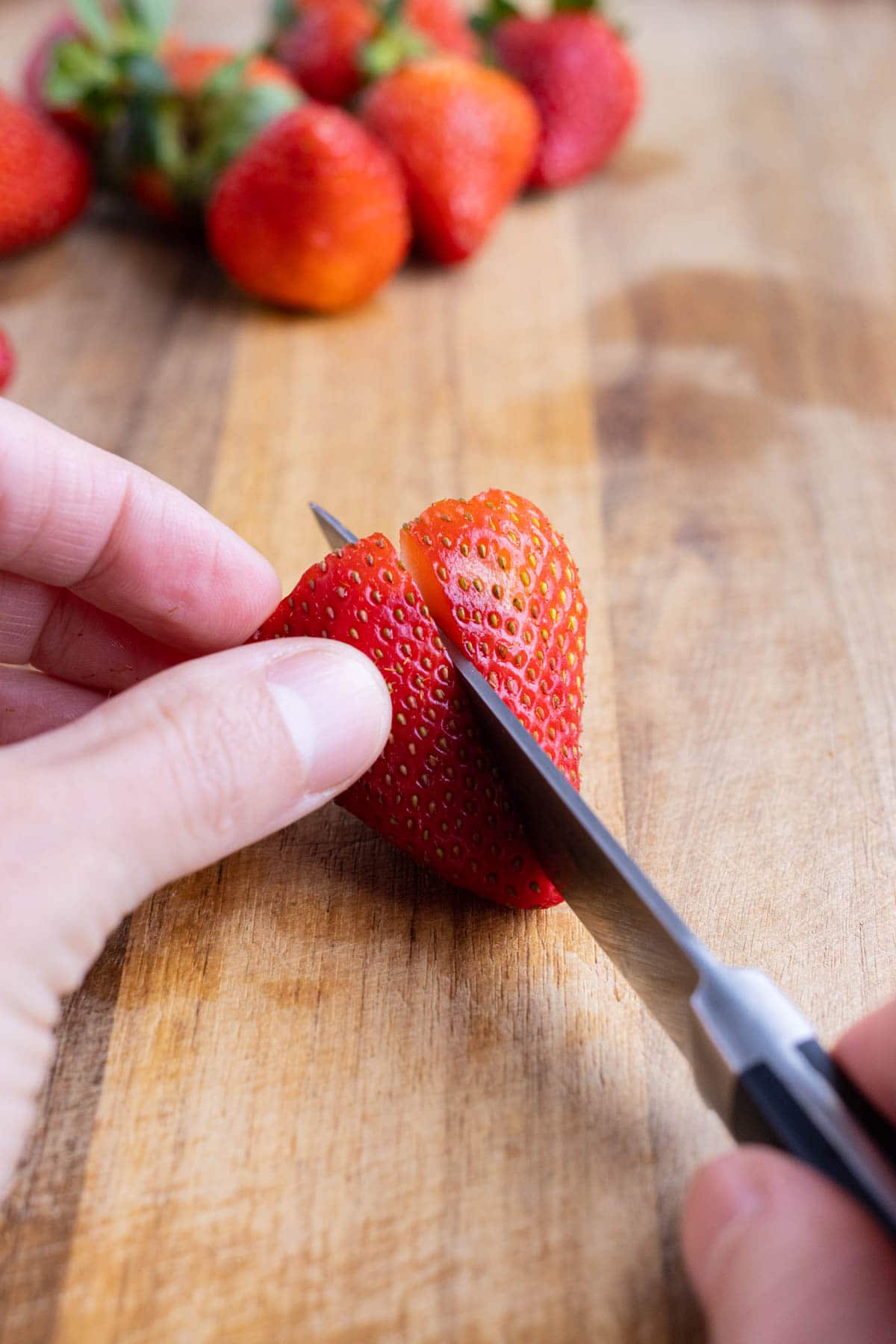
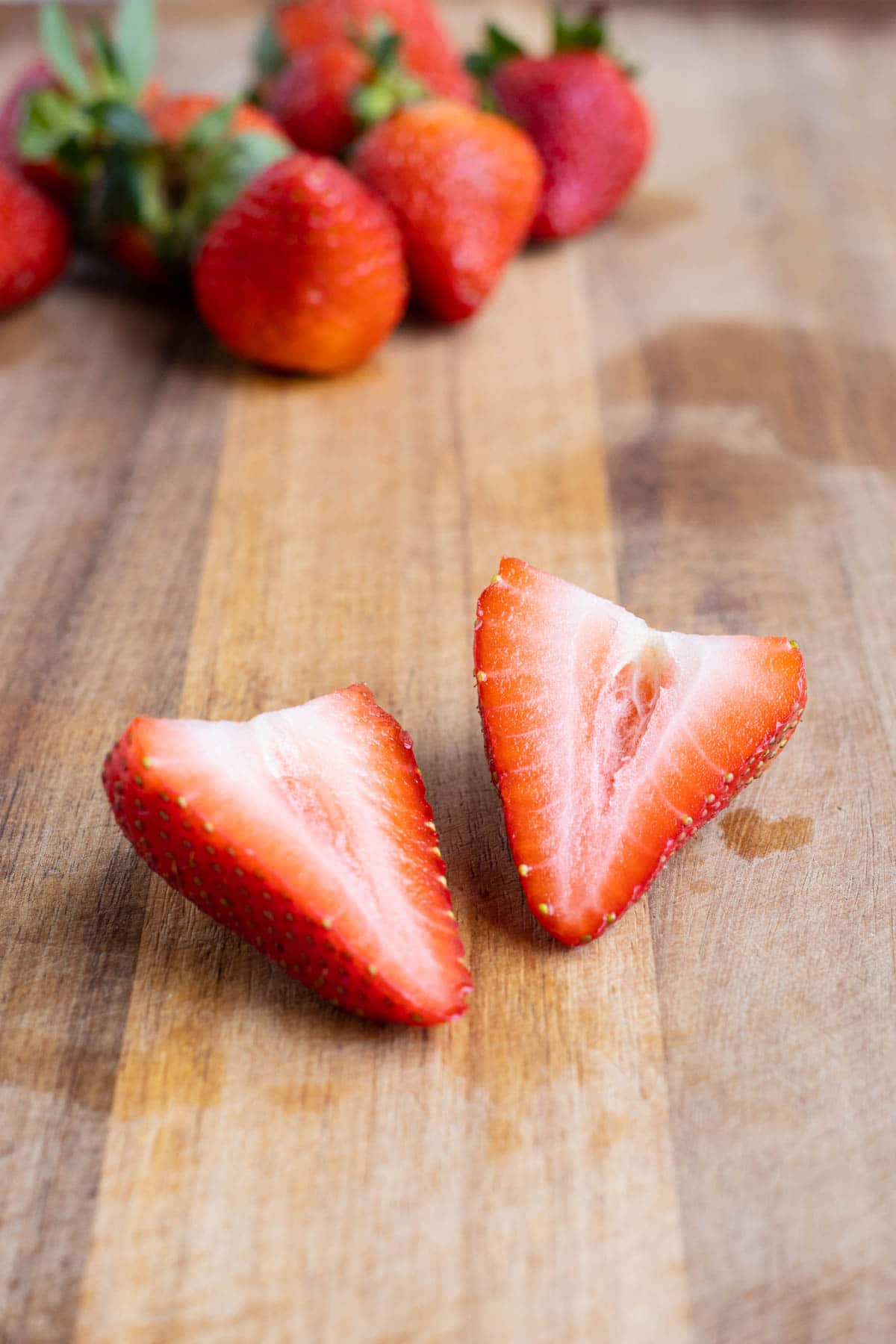
Freeze on Sheet
Line a baking tray with parchment or wax paper.
Lay out the strawberries in a single layer. Ensure none are touching so they don’t clump together. Put the strawberries in a freezer for 3-4 hours.
There is no need to cover the berries as they won’t be in there long enough to get freezer burned.
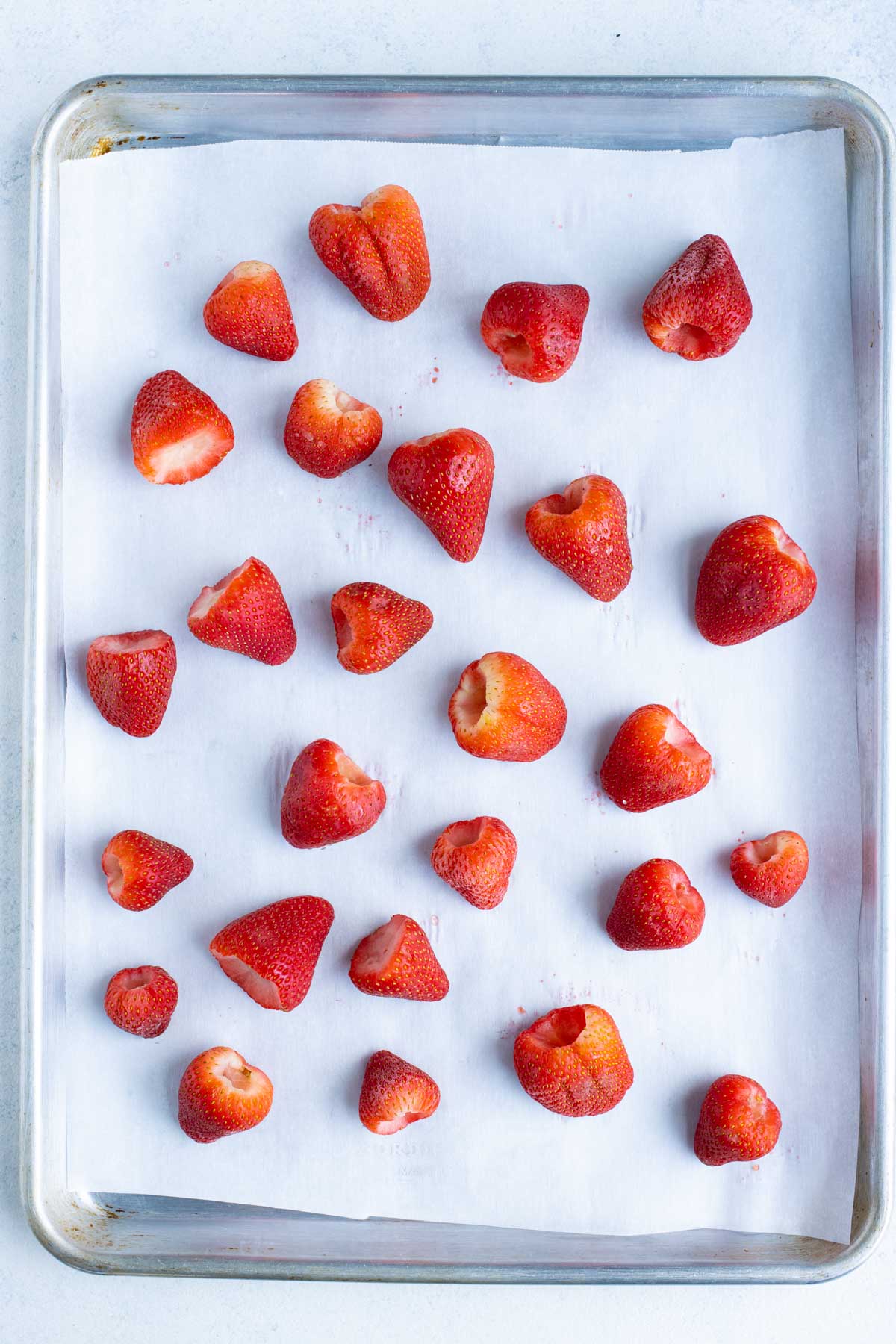
Bag or Container
Remove the pan from the freezer. Transfer the strawberries to a zip-top bag or store them in a freezer-safe plastic container. Remove as much air as possible from the bag, seal it well, and label with the date.
Return the berries to the freezer. Store for up to a year.
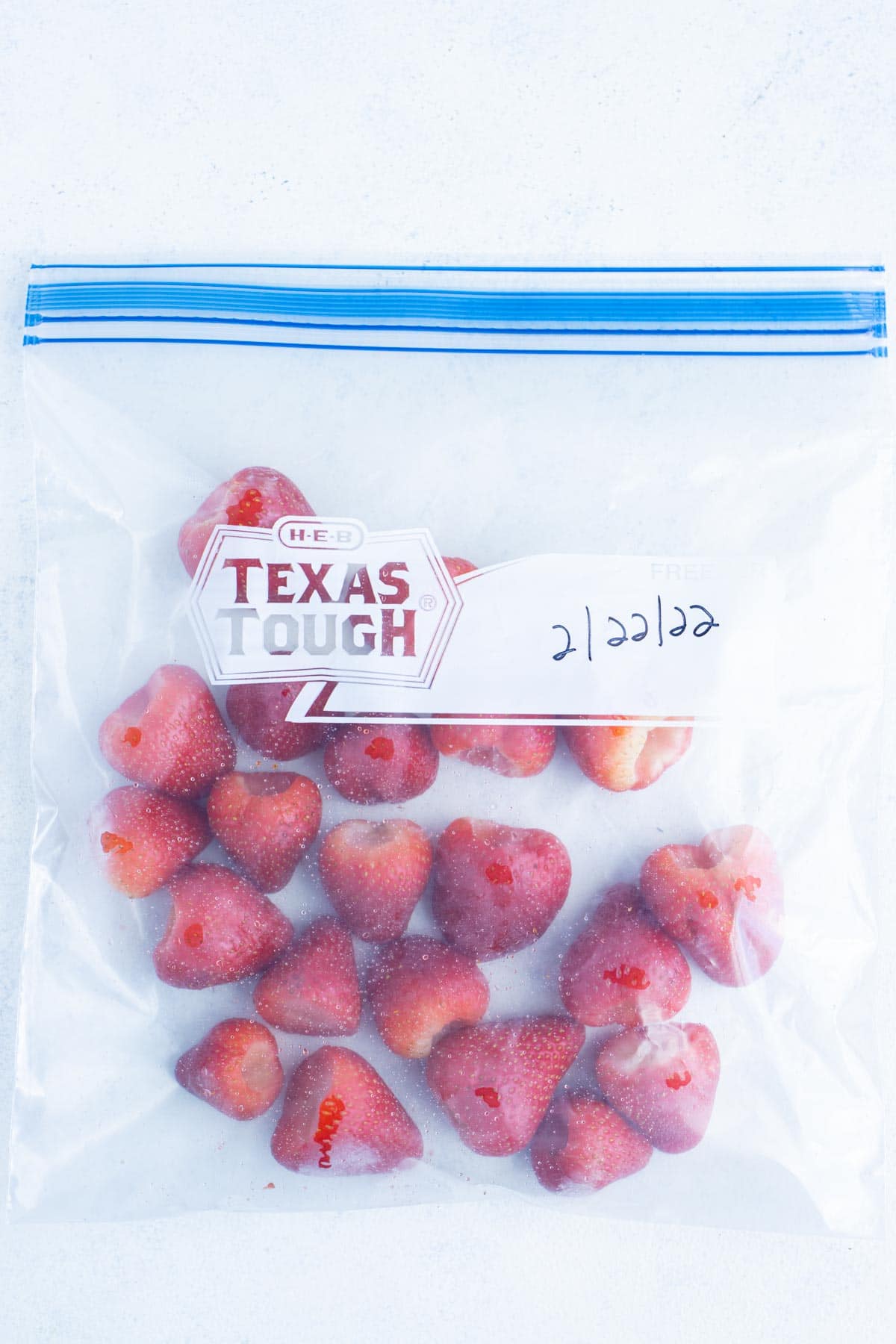
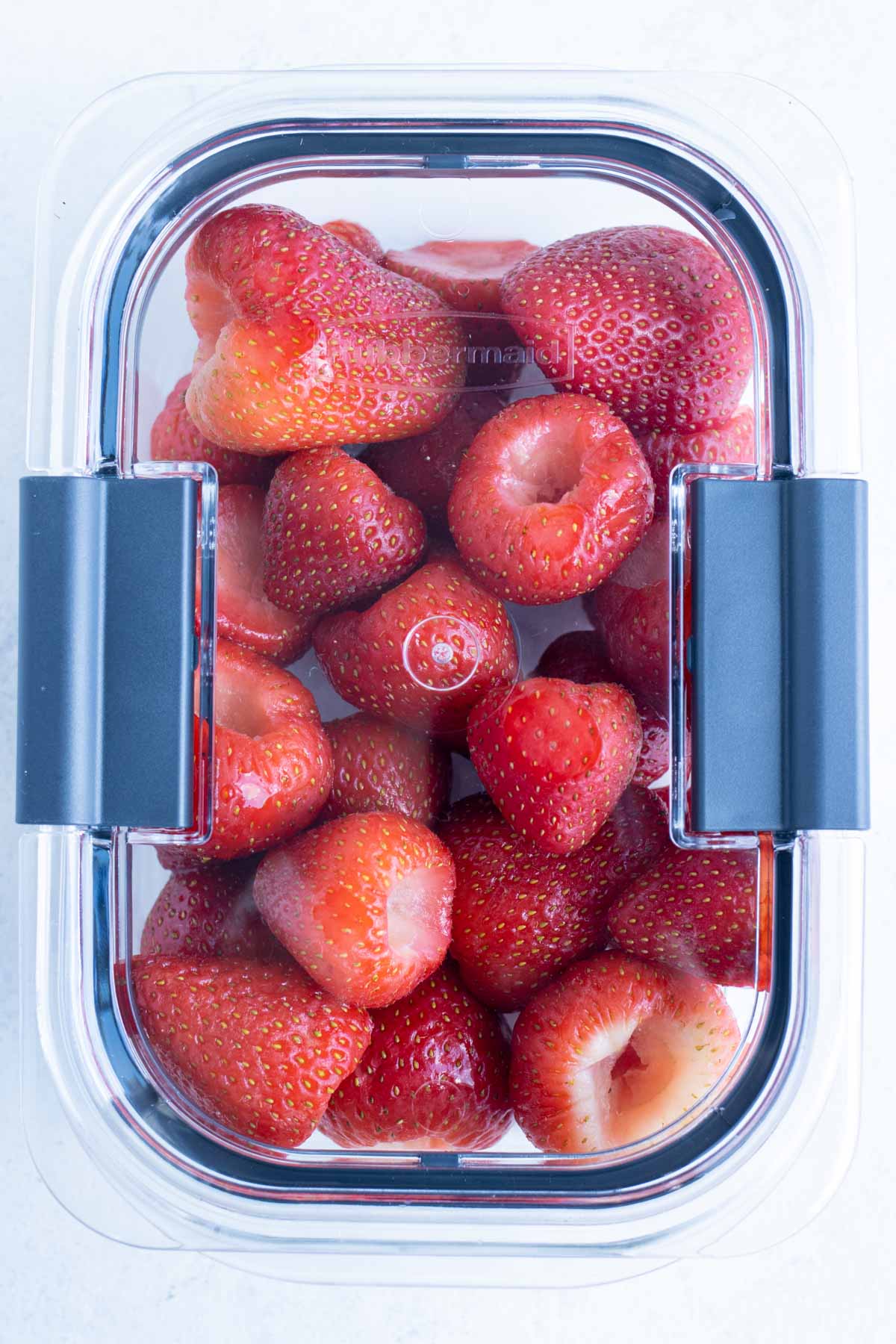
How to Defrost Frozen Strawberries
When you are ready to use the frozen strawberries, there are a couple of ways to defrost them.
1-Minute Method
For a quick thaw, microwave the berries in 30-second intervals. Check and stir the strawberries between each warming. Be sure to pay attention so you don’t scorch them.
15-Minute Method
Another option is to leave the strawberries in the freezer bag. Next, place them in a bowl of lukewarm water. Allow the berries to sit for 15 minutes. Check the bag after 5 minutes and break up any clumps that remain.
1-Hour Method
If you have a little more time, place some paper towels on the counter and lay the berries on it to thaw for one hour. You might need to change the cloth if it becomes too wet from the condensation.
24-Hour Method
Finally, you can place the bag of strawberries in the refrigerator. They will be thawed and ready to use the next day.
FAQs
Depending on what you will use them for, you can freeze strawberries whole or sliced. If you will be making smoothies, full strawberries are fine. For pies or cobblers, cut-up berries are best.
If you flash freeze dry strawberries in a single layer first, it prevents ice crystals from forming. When thawed, the berries should not be mushy.
Strawberries are full of vitamins and minerals, particularly Vitamin C and potassium. They are also rich in antioxidants, known as polyphenols, and are incredibly good for you.
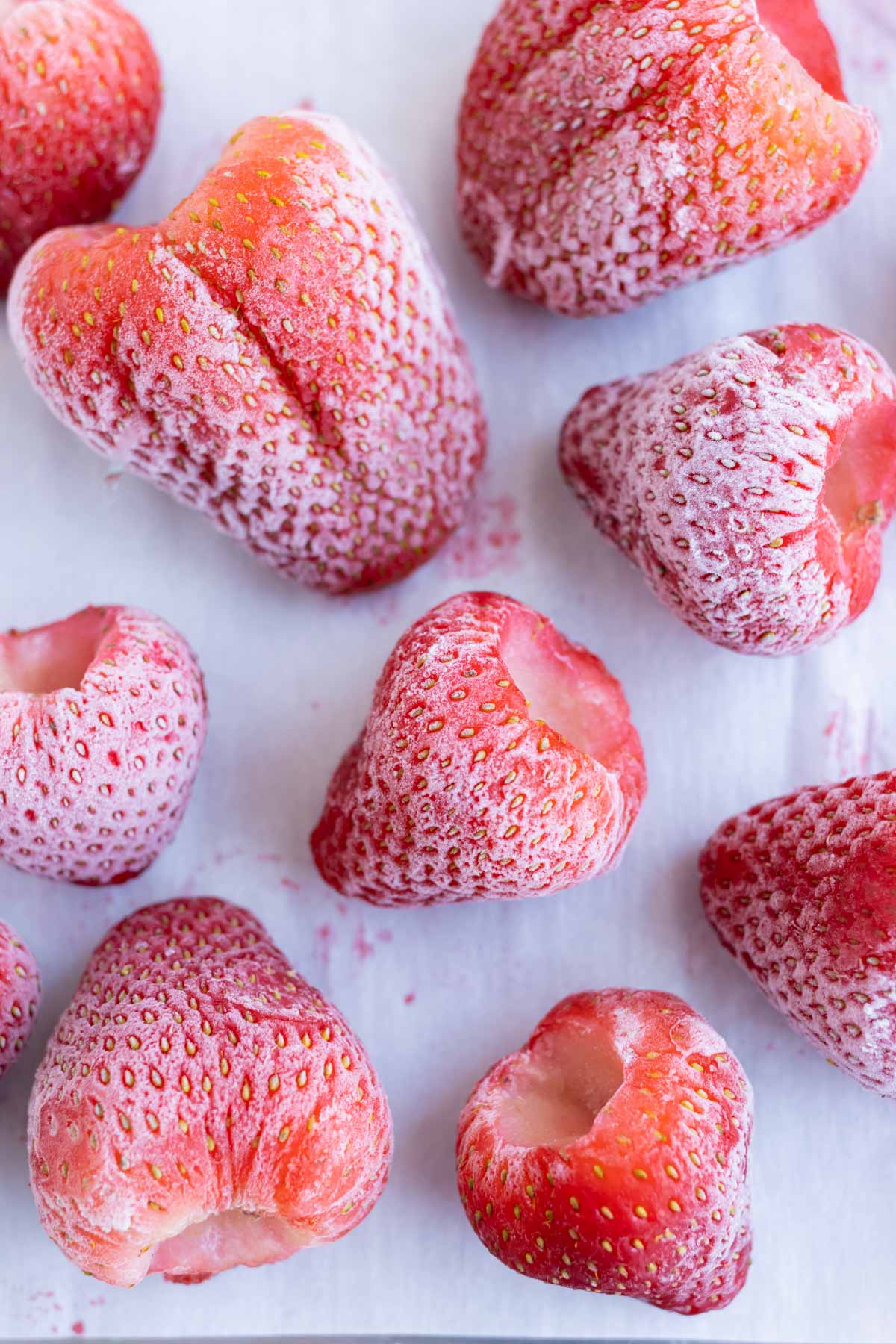
Expert Tips and Tricks
- At the peak. Use strawberries when they’re in season for the most flavor and affordability.
- Hull all the way. Prepare the berries for freezing by ensuring all of the white areas are removed.
- Flash freeze. Place the strawberries in a single layer on a pan and put in the freezer to prevent clumping.
- Air-tight. Store the berries in an air-tight bag for ultimate freshness.
- No moisture. Ensure strawberries are completely dry before freezing them to avoid freezer burn.
Ways to Use Frozen Strawberries
You can use frozen strawberries in a variety of delicious recipes:
- Smoothies (Strawberry Banana Smoothie, Strawberry Kiwi Smoothie, Mixed Berry Smoothie)
- Baked Oatmeal
- Gluten-Free Pancakes (mixed in or as a topping!)
- Preserves or Jams
- Cakes, Muffins, and Pies (Like this Strawberry Pie!)
More Foods to Freeze
Once you see how easy it is to freeze strawberries, try any of these other foods:
Tap stars to rate!
How to Freeze Strawberries

email this recipe!
Ingredients
- 1-4 lbs. fresh strawberries
Instructions
- Rinse strawberries in a colander to remove any visible dirt and then dry thoroughly with a dish towel.
- Using a small paring knife, cut around the stem of each strawberry to remove it as well as some of what’s underneath. Repeat this with the remaining strawberries until they have all been hulled. You can either keep the strawberries whole or cut them in half at this point.
- Place the strawberries in a single layer on a parchment paper-lined baking sheet and freeze for at least 3-4 hours or up to overnight.
- Once firm, transfer the berries to a freezer-safe bag and write the date on the front. Store in the freezer for up to a year.
Tap stars to rate!
Video
Notes
- Nutritional information is calculated based on a 1 cup serving of strawberries.
Nutrition
Nutrition information is automatically calculated, so should only be used as an approximation.

